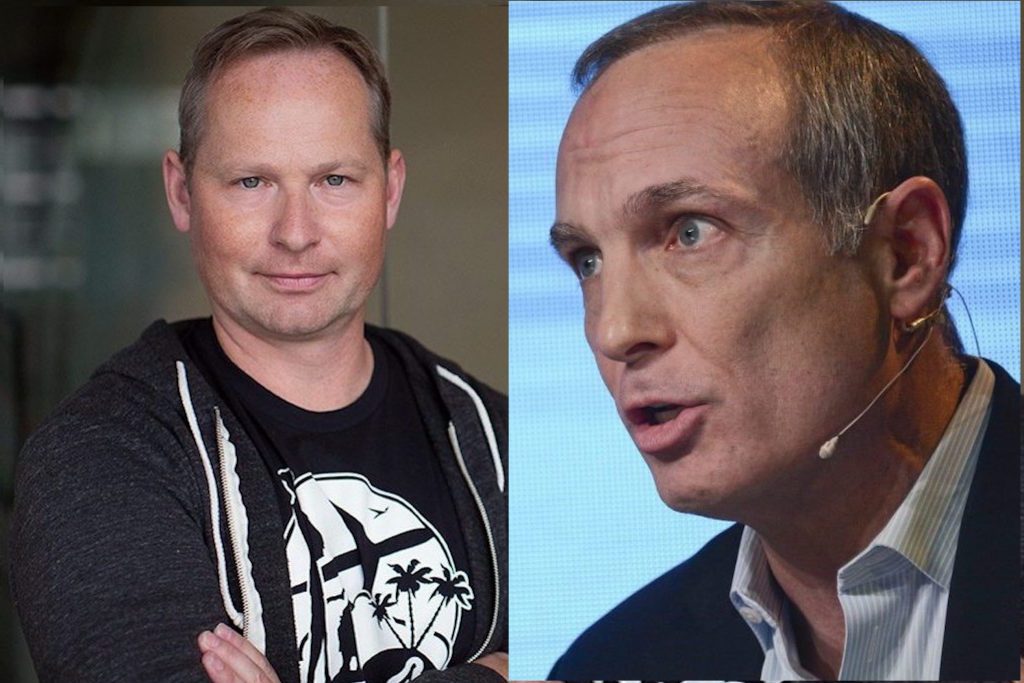Skift Take
Booking.com has been making strides in the U.S. market for several years, but the challenges are formidable. Expedia is outspending Booking.com on U.S. TV, and then there is Airbnb to throw into the equation.
When Booking.com tries to make up ground against Expedia, the leading online travel agency in the U.S. in terms of market share, the Europe-based booking site faces several challenges, including the composition of the U.S. hotel market.
After all, Amsterdam-headquartered Booking.com became the largest global accommodations site because it could offer consumer demand and services largely to independent hotels, particularly in Europe.
But the United States is another story — a hotel chain story.
Booking Holdings CEO Glenn Fogel addressed some of these challenges about facing off against Expedia and making gains in the United States earlier this month at a Nasdaq investor conference in London.
Fogel mentioned that the United States probably has the largest percentage of chain hotels, making the market dynamic different for Booking.com than what it confronts elsewhere.
Chains Aren’t Its Sweet Spot
“The larger the hotel, the more sophisticated the hotel, the less value we bring,” Fogel said, adding that Booking.com, which started breaking into the U.S. several years ago, still offers chains a “tremendous amount of value.”
“But imagine the difference between, say, Marriott, which can do some things on their own,” Fogel said. “They’ve got a computer there, OK. They’ve got smart people there and everything versus a little hotel in the middle of Iowa, right? Exactly. There’s a whole difference.”
Both Booking.com and Expedia offer a variety of marketing and analytics services to hotels, but when it comes to trying to make up ground against Expedia in the U.S., where Booking.com trails by a wide margin, it realizes that making inroads with the big chains can be a hard sell.
Expedia has been picking up some U.S. share in recent years, most likely in large measure through acquisitions. In an investor presentation in February, Expedia claimed to have a 27 percent share of the U.S. online travel market in 2017, up from 20 percent in 2016. But much of the jump was because Expedia changed the methodology and included bookings for alternative accommodations in the 2017 figure for the first time.
In 2014, prior to Expedia acquiring Travelocity, Orbitz Worldwide and HomeAway, Expedia claimed just 16 percent of the U.S. online travel market in terms of gross bookings.
Booking.com and parent company Booking Holdings, which also includes U.S.-based Priceline and Kayak, don’t release U.S. market share figures.
An Advertising Battle
Getting people to book direct on Booking.com is a key priority for the company. One of the reasons Fogel said he admires Amazon is because consumers don’t think of Google first when shopping for goods, but often go directly to Amazon to buy.
But the Expedia brand is one of the impediments to travelers thinking about Booking.com as their first option, Fogel concedes.
Who’s Winning on TV?
“Well, we have a very large competitor in the U.S. who’s been around for a long — much, much longer than we have and built a very good brand, and spends a lot of money on brand advertising,” Fogel said, referring to Expedia. “That’s something we’ve got to compete against. So we’re going to push against that one …”
When it comes to brand advertising, much — but far from all of it — takes place on TV.
When considering Expedia.com and Booking.com, and excluding their sister companies such as Hotels.com for Expedia Group and Priceline for Booking Holdings, for example, Expedia outspent Booking.com on national U.S. TV advertising this year, according to data from TV analytics firm iSpot.TV.
Year to date through December 16, Expedia.com spent $90.64 million on U.S. national TV advertising compared with $85.1 million for Booking.com, according to iSpot.TV’s estimates. Booking.com spent less money overall on U.S. TV, but its spots had more airings, some 124,000, versus the Expedia.com TV frequencies, which numbered around 72,000.
Expedia’s top three shows, in descending order, for its TV advertisements this year were NFL Football, The Late Show With Stephen Colbert, and Tucker Carlson Tonight, while Booking.com’s preferred broadcasts were NFL Football, NBA Gametime, and Ridiculousness.
So just in terms of TV advertising — we don’t have their respective numbers for other types of U.S. advertising — Booking.com faces a big spender in Expedia, and thus a formidable foe.
Fogel, though, is giving no ground.
“We believe it’s a great opportunity for us and some people look at it, wow, that’s going to be hard,” Fogel said. “I look at it like the glass is half (full). We’re going to bring that other half now. But I like it.”
Both Expedia and Booking.com are facing pushback from large U.S. chains, which have for the last couple of years been prodding consumers to book direct by offering lower hotel rates for their own sites for loyalty program members than they give to the online travel agencies.
And, neither Expedia nor Booking.com has the favorable brand reputation that Airbnb, which is headed toward a 2019 initial public offering, can claim.
It all makes for a tough market for Booking.com in terms of expanding its footprint, but not an insurmountable one.
The Daily Newsletter
Our daily coverage of the global travel industry. Written by editors and analysts from across Skift’s brands.
Have a confidential tip for Skift? Get in touch
Tags: advertising, booking holdings, booking.com, chains, expedia, glenn fogel, hotels
Photo credit: Booking Holdings are battling one another — and hotels — in the battle for U.S. market share. Pictured are Expedia Group CEO Mark Okerstrom (left) and Booking Holdings CEO Glenn Fogel. Buy Tourism Online / Skift
